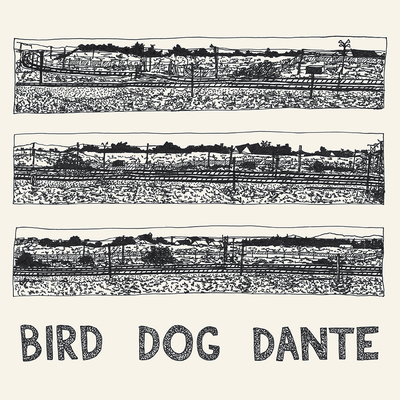
Chore of Enchantment
Howe Gelb’s Giant Sand is the most resilient and consistently inventive American band of the last two decades, part of the well spring of the Tucson musical dynasty.
Most artists who have amassed a body of work as enormous and varied as Howe Gelb have made some impression in the collective consciousness, but he continues to reside in a dimly lit corner of the rock circus. Out in the Arizona desert, Gelb painstakingly cuts and pastes home recordings into heartrenderingly intimate solo albums and rushes into spare studios for hurried jam sessions with itinerant musicians of all generations.
Giant Sand’s new album, Chore of Enchantment, is as good a place as any to acquaint yourself with his wayward muse. But first, a little history.
Giant Sand’s debut arrived in 1985, a corrosive collection of proto-grunge, roots inflected songs with original drummers Winston Watson (Bob Dylan) and Tom Larkins (Johnathan Richman) and bassist Paula Jean Brown (Go- Go’s). The band had morphed by 1990, when Gelb was worrying less about stylistic distinctions and John Convertino’s ability to cover the entire drum kit in a second or switch from sticks to brushes in the space of beat than in providing a platform for Giant Sand’s ever- changing line-ups to fashion something utterly unique. The band knew no boundaries as Gelb developed a personal lyrical vocabulary of hipster shorthand and sun-fried peyote visions, and discovered the improvisational joys of "instant composition." 1992’s Centre of The Universe employed ex- Bangle Vickey Petersen and the Cowsills Susan Cowsill as go-go cheerleaders to create bubblegum country-rock. 1993’s Purge and Slouch was freeform, a nice contrast to the totally polished Glum (1994). After 1996’s live Backyard Barbecue Broadcast everything went quiet.
Howe’s longterm collaborator and original Giant Sandworm Rainer Ptacek was diagnosed with a brain tumor and Gelb’s time was occupied putting together a benefit album, The Inner Flame, with Robert Plant, a devotee of Rainer’s solo albums.
Slush, which Gelb recorded around that time under the name of OP8 with Convertino, bassist Joey Burns and Lisa Germano, was arguably the best album of 1997, but otherwise his normal creative torrent was drastically stemmed. Rainer passed away in 1997, and Gelb’s subsequent solo album, Hisser, was a low-key and elegiac affair, haunted by grief, ghost whispers of Rainer’s guitar style drifting through the grooves.
Gelb says of Chore of Enchantment, "The overall sound could be summed up as a mix of slow burning hot buttery Memphis moistness with the crispy quiet crackle of Tucson thirsty-ness. An attempt to serve up a saucer full of hitherto unpredictable predictabilities…as opposed to the usual platters of predictable unpredictabilities, " he adds, with typical elliptical logic.










